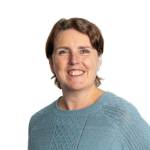About the Authors

Amina Tariq
Amina is an Associate Professor in Digital Health within the School of Public Health and Social Work at QUT. Her research strengthens the global digital health agenda, enabling health stakeholders to adopt an evidence-based approach to mitigate patient safety risks associated with technology while maximising efficiency benefits.
Profile: Queensland University of Technology

Brooke Macpherson
Brooke Macpherson is a Health Information Manager with over 20 years of experience in the Australian health system at the local, state, and federal level. Brooke’s experience includes roles in hospital data analysis and reporting, website development, program monitoring and evaluation, and health classification (including development of ICD-11). Since 2014, Brooke has been involved in international health classification activities with the World Health Organization (WHO) Family of International Classifications (FIC) Network, serving as Secretariat for its Family Development Committee (2014-2018) and Classification Statistics and Advisory Committee (2020-2024). Brooke’s current role is responsible for analysis and reporting of primary health care data.
Profile: LinkedIn

Erin Roehrer
Associate Professor Erin Roehrer is a member of the School of Information and Communication Technology at the University of Tasmania and an award-winning educator with over 15 years’ experience in higher education. She teaches across a broad range of ICT areas, including project management, systems strategy, and digital health, with a focus on digital literacy, leadership, and professional practice in complex environments. Erin’s teaching philosophy is grounded in collaboration, reflection, and innovation. She views students and educators as co-participants in a dynamic learning process, enriched by authentic engagement, stakeholder collaboration, and self-directed inquiry. Her “teacher-as-innovator” mindset actively fosters digital capabilities and critical thinking, empowering staff and students to confidently navigate evolving technologies and sector demands. Her work exemplifies values-led leadership and a deep commitment to developing digitally fluent, socially responsive, and practice-ready graduates across information systems.
Profile: University of Tasmania

Filippa Pretty
Is a senior Health Classifications Specialist in the Pacific Health Information and Classification Support Unit (PHICS) at the AIHW. Over the past two decades, Filippa has worked extensively across the Australian healthcare system (and internationally) in both the public and private health sectors, in diverse roles such as Clinical Coder, Health Information Manager, Health Information Consultant, and Clinical Coding Auditor. Filippa was Operations Coordinator at the National Centre for Classification in Health (NCCH) at the University of Sydney, which she joined in 2015 until the end of 2019, and oversaw the development of ICD-10-AM/ACHI/ACS Tenth and Eleventh Editions. Filippa has also been involved in the development of the Reference Classifications (ICD-11, ICF and ICHI) for the WHO for the past 10 years, currently sitting on six WHO-FIC network committees and groups (cochair to one), as well as the WHO-FIC Network Council. Filippa has worked for the WHO in the development of the Digital Adaptation Kits for Antenatal Care, Family Planning, HIV, Postnatal care, TB, COVID-19, STIs, and other communicable diseases; which involved mapping of data fields to ICD-10, ICD-11, ICHI, ICF, LOINC, ATC and SNOMED (International). Between 2016-2022 Filippa taught Health Classifications subjects as a Lecturer and Tutor for Western Sydney University, and is an ongoing guest lecturer at the University of Sydney Data Linkage course.
Profile: LinkedIn

Gina Banfield
Gina is an experienced leader in Health Information Management and Health Informatics, with a diverse background spanning both Australian and international health services. She currently serves as the National Health Information Manager for Ramsay Health Care, following her previous role as Queensland Health Information Manager. Before joining Ramsay, Gina held the position of Deputy Manager of Health Information at the Royal Flying Doctor Service (Queensland Section), where she contributed to the advancement of health information services within the section.
Profile: LinkedIn

Helen Almond
Helen is a passionate healthcare leader with more than 40 years of experience as a registered nurse and sick children’s nurse. With a PhD in Digital Health and Informatics and an MSc in Clinical Nursing (Nurse Practitioner UK), she is a leading expert in digital health, informatics, and clinical nursing. As the Head of School for Nursing, IHM Helen is dedicated to shaping the future of healthcare education, research, and delivery. She leads innovative initiatives to drive change in the healthcare landscape, ensuring that nursing professionals are equipped with the skills to succeed in an evolving environment. Helen also plays a vital role in national healthcare policy as a Digital Health Adviser and external Clinical Governance committee member, contributing to the Australian Digital Health Agency’s Framework for Delivery. A Fellow of the Australasian Institute of Digital Health, vice chair of the Nursing and Midwifery Network, and vice chair (communications) of the International Medical Informatics Association, Helen is at the front of transformative healthcare leadership. Her research focuses on the impact of digital health technologies on person-centred care for vulnerable communities, reinforcing her commitment to improving healthcare outcomes for all.
Profile: LinkedIn

Jennifer Ayton
Dr Jennifer Ayton is a maternal and reproductive health researcher, qualitative researcher, and Senior Lecturer in Public Health at the University of Tasmania School of Medicine. As a social scientist, she holds a Ph.D. in Sociology, Master of Research (Midwifery), and is Registered Midwife and Nurse. Jennifer leads a collaborative research program that focuses on promoting gender equality, optimising women’s, and their family’s health from a public health perspective through research with and for women. ORCID: https://orcid.org/0000-0003-0092-437X
Profile: University of Tasmania LinkedIn
Joel Scanlan
Dr Scanlan is a Senior Lecturer in the Tasmanian School of Business and Economics, based in Hobart. He specialises in cybersecurity and privacy, having undertaken a PhD in the area. He has been teaching and consulting with the industry for 20 years. He teaches in Health Information Management and undertakes research in digital health. His primary research interests relate to the technical and social harms of the internet, with a particular focus on child exploitation prevention, cybersecurity and machine learning. His research involves collaborating closely in multiple-disciplinary teams from psychology and law.
Profile: University of Tasmania LinkedIn

Karima Lalani
Dr. Karima Lalani is the Program Director of both the master’s and the bachelor’s degree programs in Health Informatics and Health Information Management (HIHIM) at the University of Washington in Seattle, Washington, USA. Dr. Lalani holds a Ph.D. in Health Policy and Management from The University of Texas Health Science Center School of Public Health, and is a seasoned health informatics researcher and professional, with over 15 years of experience in healthcare workforce education and training, strategic planning, and digital health. She is a Fellow of the American College of Healthcare Executives (FACHE), and a Registered Health Information Administrator (RHIA). Prior to joining the University of Washington, she was an Assistant Professor at The University of Texas Health Science Center McWilliams School of Biomedical Informatics, and the Assistant Director of the Center for Health Systems Analytics at UTHealth Houston, where she was responsible for overseeing and managing the Center’s multidisciplinary research projects on substance use and mental health. As author or co-author of more than 20 peer-reviewed journal articles, Dr. Lalani is a notable researcher whose work has appeared in high-impact journals, including the International Journal of Environmental Research and Public Health, JMIR Medical Education, and Health Information Libraries Journal.
Profile: University of Washington or LinkedIn

Kerryn Butler-Henderson
Professor Kerryn Butler-Henderson is Head, School of Nursing, Paramedicine and Healthcare Sciences at Charles Sturt University. She is a well-respected digital health academic, with more than twenty years’ experience working in health and higher education. She is known for her expertise in digital health, particularly in workforce and digital health implementation science research. Kerryn is a Fellow of the Australasian Institute of Digital Health (AIDH). She was recognised for her expertise in 2021 as a Future50 Health IT Leader by HIMSS and 2022 as a Telstra Health Brilliant Women of Digital Health Award recipient.
Profile: Charles Sturt University ORCID iD
Laura McVey
Laura McVey is a health information and privacy specialist with a keen interest in Digital Health. Laura has worked for a variety of healthcare organisations in Queensland and has recently been working as a Privacy and Data Governance Consultant. Laura holds a Bachelor of Health Science – Health Information Management from Queensland University of Technology, a Graduate Certificate in Health Management from University of New England and a Master’s in Public Health from University of Queensland. Laura is currently working as the Health Information Manager at Royal Flying Doctors Service Queensland.
Profile: LinkedIn

Lachlan Hardy
Lachlan Hardy is a Teaching Fellow specialising in cyber security education, with a research focus on information systems and human-computer interaction. His academic work investigates the interplay between digital competency and technological self-efficacy to explore user experience and socio-technical systems. Lachlan is dedicated to enhancing inclusive and effective teaching practices, leveraging emerging technologies to support critical thinking, problem solving, and practical skill development in cyber security and information systems.
Profile: University of Tasmania

Maryann Wood
Maryann Wood is a consultant with expertise in health information management and clinical classification. She has most recently been an academic at the Queensland University of Technology specialising in the area of health information management, quality management and project management. Maryann also has significant experience as an international consultant in these areas. She has been employed as a short term consultant on a number of occasions by agencies such as the World Health Organisation and the Department of Health and Ageing (Australia) in both the Pacific and South – East Asia regions. The work Maryann undertook during these consultancies involved provision of advice on health information systems, development of training modules in ICD-10 and hospital information systems, conducting “train the trainer” workshops in a variety of areas such as clinical classification (for mortality and morbidity). Nationally, she has provided consultancies services in mortality for child death review teams across a number of jurisdictions. She has also undertaken several international consultancies in project management during her tenure at the Australian Bureau of Statistics in the Solomon Islands and Nauru.
Profile: LinkedIn

Matthew Springer
Dr Matthew Springer is a Senior Lecturer in Information and Communication Technology at the University of Tasmania, with over two decades of experience in inclusive, student-centred education. His teaching and leadership are defined by a deep commitment to equity, diversity, and belonging, values that inform all aspects of his work across curriculum design, governance, and academic integrity.
Matthew has led innovation in digital learning, pioneering case-based and modularised delivery models that promote accessibility, engagement, and real-world relevance. His work exemplifies values-led leadership, ensuring digital transformation, inclusion, and academic excellence go hand-in-hand to create transformative learning experiences for all students. Matthew’s ongoing contributions also support the development of digitally fluent graduates and stakeholder-informed curricula that respond to the evolving needs of the ICT and digital health sectors.
Profile: University of Tasmania

Rachel Fojtik
Rachel Fojtik is a data and analytics leader with over 20 years’ experience in complex, highly regulated environments. She is currently a Leader in Data Governance at Rio Tinto, responsible for embedding governance frameworks and championing ethical data use. Rachel has held senior roles across healthcare, energy, and finance, including at Mater Health Queensland, where she led clinical and operational analytics. She co-authored the chapter on interoperability and user experience in Digital Health: A Transformative Approach and speaks regularly on applying data governance and storytelling to advance decision-making in healthcare settings.
Profile: LinkedIn

Sallyanne Wissmann
Sallyanne Wissmann is the Chief Executive Officer of the Health Information Management Association of Australia (HIMAA) and is a Health Information and Information Management Executive Consultant. Sallyanne has over 30 years’ experience as a leader in health information management in the public and private not-for-profit healthcare environments in Australia and New Zealand. Sallyanne is a fellow and life member of HIMAA, a Certified Health Information Manager (CHIM), a Certified Health Informatician Australasia (CHIA), and an Associate Fellow of the Australasian College of Health Service Management (AFCHSM). Sallyanne has previously served as the IFHIMA Western Pacific Regional Director during which time she served on the IFHIMA Board.
Profile: LinkedIn

Salma Arabi
Salma is a digital health academic with a dedicated focus on gender and leadership in the digital health workforce. She completed her PhD at RMIT University where she explored the challenges and opportunities that arose for participants of a cross-border collaboration within the healthcare sector. She used those insights to develop a conceptual framework that can be used to guide future partnerships in healthcare. Through her work as a research and translational scientist, she continues to actively contribute to digital health knowledge advancement. In addition to her academic achievements, Salma is passionate about advocating for gender equity in the digital health field, where women and non-binary people are often underrepresented in leadership roles.
Profile: Charles Sturt University

Sandeep Reddy
Professor Sandeep Reddy is an experienced researcher in artificial intelligence implementation in healthcare. He serves as Professor and Head of Discipline for Healthcare Management and Health Safety and Environment at Queensland University of Technology’s School of Public Health, and leads the Health, Human Biology and MedTech Theme at the Centre of Data Science. Prof. Reddy was previously on the WHO Digital Health Roster of Experts and Focus Group on AI for Health. He has authored several books on AI in healthcare and leads projects developing AI systems for clinical communication and medical education.
Profile: Queensland University of Technology

Sheree Lloyd
Dr. Sheree Lloyd is a senior lecturer at the Tasmanian School of Business and Economics, with over 30 years of experience in academic and health service management roles. As a Certified Health Information Manager and Fellow of multiple prestigious institutions, including the Australasian College of Health Service Managers and the Australasian Institute of Digital Health, she has demonstrated exceptional expertise in digital health and healthcare innovation. Her accomplished career includes leadership positions such as Director of Health Information Service at Princess Alexandra Hospital and Regional Health Information Management at Metro South Regional Health Authority, where she successfully managed large-scale hospital information systems and activity-based funding projects. A passionate educator and researcher, Dr. Lloyd has been recognised with numerous accolades, including a Vice Chancellor’s Award from Queensland University of Technology and teaching commendations from multiple institutions. Her PhD research on innovation and high performance in rural health settings earned an Executive Dean’s commendation, reflecting her commitment to advancing healthcare delivery in rural areas. She is the Chief Examiner for the Australasian College of Health Service Management Fellowship and contributing to various national committees in digital health, health service management, and health information management.
Profile: University of Tasmania LinkedIn

Susan Fenton
Dr. Susan H. Fenton is the Dr. Doris L. Ross Professor and Vice Dean for Education at the UTHealth Houston McWilliams School of Biomedical Informatics. She is responsible for their certificates, master’s, and doctoral degree programs. Dr. Fenton received the 2024 AHIMA Distinguished Member Triumph Award. She has received multiple teaching awards, including The University of Texas Regents’ Outstanding Teaching Award in 2019 and the 2021 UTHealth President’s Scholar Award for Teaching. Dr. Fenton’s research focuses on ICD-11, workforce development, and optimizing HIT for preventive and chronic care delivery in low-resource settings. She serves on professional association committees and boards.
Profile: LinkedIn

Trixie Kemp
Trixie Kemp is the Director of Health Information Management Services at the Department of Health Tasmania, bringing over 30 years of experience in both community and hospital settings. She provides expert guidance and education on information governance, policy, records management, digital health, data quality, and privacy to healthcare facilities and projects. Trixie leads a dedicated team of 150 full-time equivalents across four acute hospitals. Passionate about the critical role of health information management in patient safety, she is currently pursuing a PhD part-time at Charles Sturt University to further explore this vital contribution. Trixie looks forward to sharing her research findings in the coming years.

Vicki Bennett
Vicki is the Head of the Pacific Health Information and Classification Support Unit at the Australian Institute of Health and Welfare. She has a degree in Health Information Management, and a Masters in Health Informatics and has had a diverse career both domestically and internationally. She has worked extensively across the Pacific over the past 20+ years. She is a member of the Universal Health Coverage Technical Advisory Group for the WHO Western Pacific Region, an Advisor to the Pacific Health Information Network Board and is currently the President of the International Federation of Health Information Management Associations.
Profile: LinkedIn

Usman Iqbal
Professor Usman Iqbal is a specialist in digital health, health informatics, and evidence-based practice. He is Professor at the Institute for Evidence-Based Healthcare at Bond University and leads the Evidence-Based Practice Professorial Unit at Gold Coast University Hospital. He holds advisory and academic roles in national and international organisations, contributing to global health innovation and advancing AI-driven healthcare solutions. His work focuses on applying artificial intelligence, innovative models of care, and technology to improve healthcare quality, patient safety, clinical decision-making, and system-level performance across diverse settings.
Profile: Bond University

Willy Chan
Willy Chan brings over 17 years of experience to advancing healthcare in Australia. Willy operates at the intersection of technology and healthcare, specialising in Clinical Information Systems, Automation and AI. Working in New South Wales Health, Willy leads teams dedicated to optimizing consumer-centric systems that ensure patients receive timely and efficient care. Notably, he played a pivotal role in developing information systems used at the NSW Health Vaccination Centre during the COVID pandemic, which won the 2021 NSW Premier’s Award for customer focus. In 2022, he was honoured with the People’s Choice Award as voted by his peers, recognising his outstanding leadership and dedication. His expertise extends internationally through his work with the World Health Organization, where he enhanced digital capabilities and literacy across the Western Pacific region and contributed significantly to shaping global standards in health information. His efforts include developing the Data Management Competency Framework for the region, providing vital technical support and capacity building to member nations. Willy continues to drive digital health improvements, significantly impacting healthcare outcomes both nationally and globally.
Profile: LinkedIn

